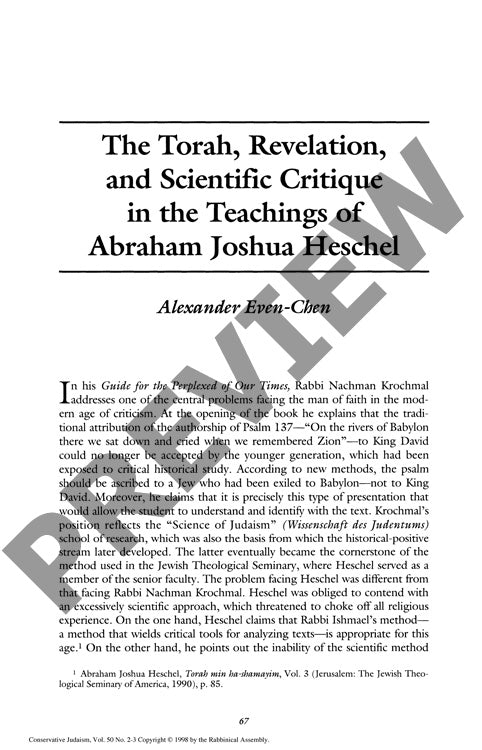The Torah Revelation and Scientific Crit
Couldn't load pickup availability
When biblical scholarship threatened to reduce sacred texts to mere historical documents, Abraham Joshua Heschel forged a revolutionary path between fundamentalism and scientific reductionism. Unlike his predecessor Rabbi Nachman Krochmal who embraced the "Science of Judaism," Heschel confronted an increasingly rigid scientific methodology that risked eliminating religious experience entirely from biblical interpretation. Through textual analysis of Heschel's major works, this research explores his distinctive approach to reconciling biblical criticism with religious belief. Heschel's methodology emphasizes the poetic nature of biblical language, arguing that revelation cannot be understood through literal interpretation but requires recognition of its allusive, mystical character. The study demonstrates how Heschel differentiates between historical questions concerning biblical authorship and fundamental questions of faith regarding divine-human encounter. His theological framework presents the Bible as both divine and human—a "midrash" or commentary on the mysterious experience of revelation rather than a systematic theological treatise. The analysis reveals Heschel's concept of "dual revelation," wherein both God and humanity participate actively in the revelatory process. Key findings indicate that Heschel's approach preserves biblical sanctity not through defending Mosaic authorship but by maintaining the prophetic status of biblical authors. This research concludes that Heschel's synthesis offers a viable alternative to both fundamentalist literalism and reductive scientific criticism, proposing instead a phenomenological understanding of scripture that honors both scholarly inquiry and religious experience while emphasizing the ongoing interpretive responsibility of the faith community.

More Information
-
Physical Description
-
Publication Information
Published 1998
ISBN
-
Publication Credits
Alexander Even-Chen

